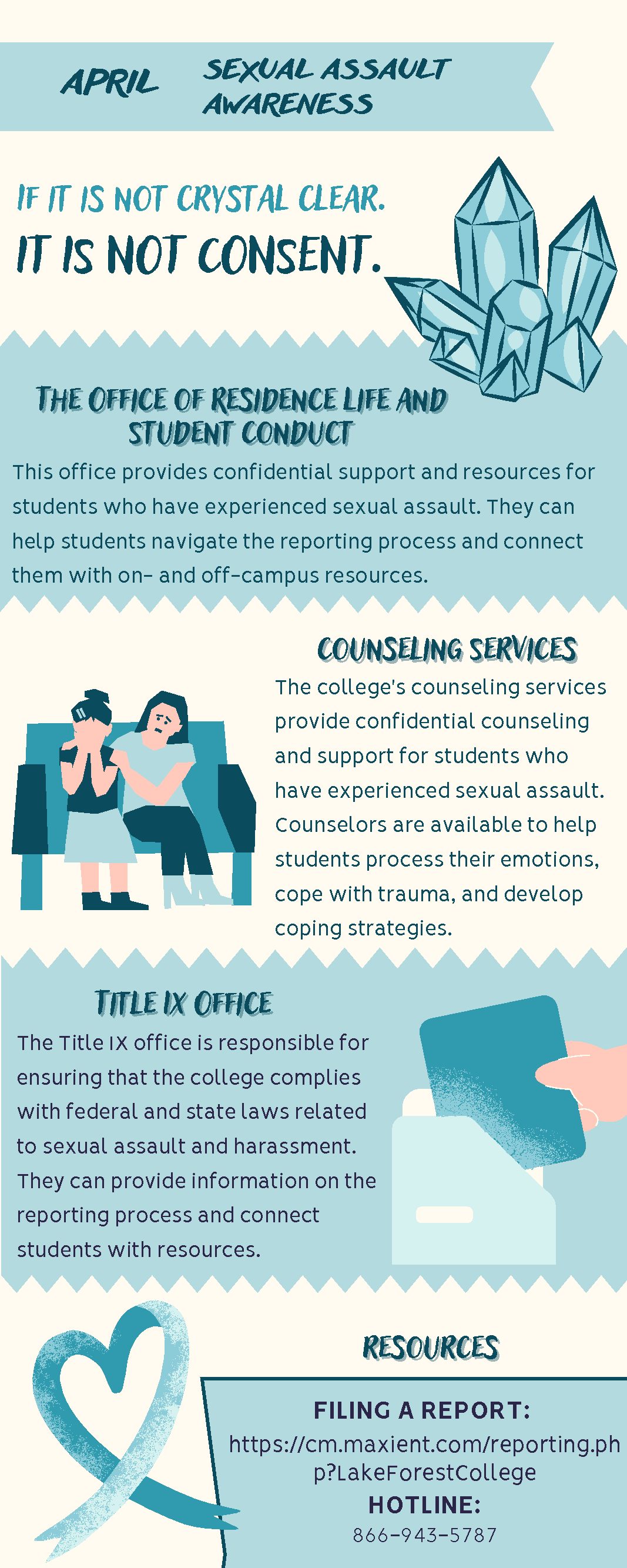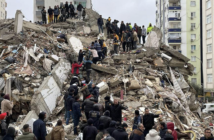The Article below was published in Vol. 135, Issue 5 of the Lake Forest College Stentor on February 7, 2020
Emma Overton ’22 and Stephanie Carlson ’21
Editor-in-Chief and News Section Editor, Staff Writer
overtoneg@mx.lakeforest.edu and carlsonsa@mx.lakeforest.edu
On January 25, Lake Forest College hosted its third annual Diversity and Inclusion Summit in the Mohr Student Center. The event, which was held from 8:30 a.m. to 5:00 p.m., was attended by approximately 100 members of the campus community. In a change to this year’s format, the summit was open to all members of the campus community, including students. Additionally, as the event program explained, it was also the first year that the Summit was held “during the semester, serving as the culmination of a week of social justice programming celebrating Martin Luther King, Jr. Day.”
In light of recent incidents of bias and sexual misconduct and related student activism during the fall semester, the organizers of the summit expressed the importance of this year’s summit, noting in the event program that “the Summit has never felt more relevant than this year when student activism brought the College community’s attention to injustices and the need for change on campus…the campus has witnessed the power inherent in the simple act of listening to each other’s experiences. It was impossible not to be moved by the stories recounted at these various forums—of sexual assault, of racism, of religious prejudice, of homophobia and transphobia, of anti-immigrant invective.”
Following registration, the first session of the Summit involved an Intergroup Dialogue Workshop facilitated by professors, current students, and alumni from Knox College in Galesburg, Illinois with experience in facilitating dialogues. The workshop was led by Professor Catherine Denial and Professor Gabrielle Raley and was co-facilitated by Jasmine Frison, Kylie Hoang, Jordan Hurst, Forrest Marie Linsell, Donna Racher-Cazares, and Katerina Sasieta. At the conclusion of the workshop, Lake Forest College Professor Anna Trumbore Jones, who also served as co-chair of the Diversity and Inclusion Summit Planning Committee, observed that “a number of students that came out of the [workshop] found it very powerful to see students facilitating conversations among students.” She further noted, “I was struck by that idea, how is it that we can offer students the opportunity to become well-versed in that type of dialogue?”
After a break for lunch, the Summit resumed with a Student Panel highlighting experiences at Lake Forest College. Panelists included Oluwafeyisayo (Feyi) Adeyinka-Oni ’22, Tebatso (Teba) Duba ’22, Esther Kim ’22, Blythe Avery May ’22, Zahra Nadeem ’22, Isabella Nuño ’22, and Diayan Rajamohan ’21. Speaking to Stentor staff after the panel, Nadeem shared that she is involved in activism on campus because she is interested in “helping out with different instances, whether that’s injustice or inequality or something like that.” She further stated that “voices need to be heard. Giving support to those causes is really important to me personally…being a student leader on campus, I feel that it is really important to be involved and share your perspective.”
Echoing Nadeem’s comments, Director of Intercultural Relations in the Office of Intercultural Relations and co-chair of the Diversity and Inclusion Summit Planning Committee Claudia Ramirez-Islas stated that the idea for a student panel came from “thinking in terms of the power we had seen of different parts of the community listening to each other at the Community Meetings last semester and so we conceived this event around the idea of listening and having empathy for others’ experiences.”
Following a coffee break, the Summit reconvened for the final workshop of the day, entitled “Restorative Justice in an Educational Setting.” The workshop was lead by Larid Mackenley Walker ’09, who after receiving his master’s in social work from Western Michigan University, works as a restorative justice practitioner in school settings. According to Ramirez-Islas, the workshop was designed to address “what you do as a community once harm has occurred.” Attendees learned about various types of community-building circles, including talking circles, conflict circles, healing circles, community-building circles, and celebration circles.
Commenting on her hopes for the aftermath of the Summit, Ramierz-Islas stated that she hopes to “move in a direction as a campus where we are proactive instead of reactive when things happen…we will continue to have ongoing programming throughout the semester. Both [Professor] Anna [Trumbore Jones] and I have committed to having brown bag lunch discussions monthly and the IAG [Intercultural Advisory Group] will continue to have the Community Caucuses on a monthly basis as well.”



